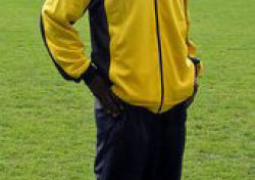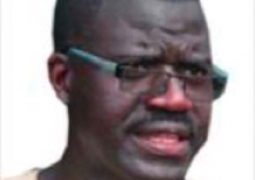As
the year comes to an end, it is vital to note that our national budget has just
been read at the National Assembly.
The
national budget determines how the government will generate income and revenue,
as well as allocate and spend those resources to ensure national development
and continuity of our nation.
And
while we are busy with the political standoff or the transition bottlenecks,
the economic plan and fiscal life of the country is somehow given less
attention.
It
is, however, essential to note that this is the budget that the next president
and government will have to inherit and grapple with, to upkeep the economic
health of this country.
Measures
to be taken by the government to maintain the economy and keep the country on
track have suggested that there will be tough financial reforms in 2017, such
as restricting the national budget, reducing the stock of national public debt,
and reforming the state-owned enterprises.
In
2017, the government intends to introduce D1 per litre fuel levy in the fuel
pump price to replace the annual payment of vehicle license and road tax.
In
January, the government is expected, as indicated in the budget, to increase
the threshold of the National Education and Technical Training Levy, from a
minimum turnover of D500,000 to D1,000,000.
Effective
January 2017, Common External Tariff (CET), an Ecowas-wide tariff on
international trade, will be implemented by government, in line with other
Ecowas countries.
A
0.2 per cent levy on the CIF (cost insurance and freight) value of eligible
imported goods emanating outside Africa will also be implemented by government,
with effect from January 2017.
These,
among other measures, would push up cost in some essential services like
transportation and education, while cash flow and money supply will also be
restricted, somehow, as government tries to reduce stock of national public
debt.
“While
some of the reforms may be tough, they are nonetheless needed if we are to
restore macroeconomic stability,” the Finance and Economic Affairs Minister
said while presenting estimates of the 2017 budget at the National Assembly in
Banjul.
The
total revenue and grants in 2017 is estimated at D14.34 billion from D12.99
billion budgeted in 2016, representing a growth of 10.4 per cent.
On
the other hand, total expenditure and net lending is projected at D19.1 billion
in 2017, from D16.9 billion budgeted in 2016, representing an increase of 13.0
per cent.
This
means Adama Barrow’s government has a serious battle to fight on the economic
front, after the battle of assuming the reins of power.
Although
some would say we wait to get there in order to cross that bridge, it is still
essential to start calculating the challenges ahead of us now, in order to
build up our strength and morale to overcome what is beyond taking over the
reins of power as we struggle to shape our nation for the better.
“Expect
obstacles and face them head on. They are going to come up so the way you
handle them is what makes all the difference. ”
Lance
Dale



